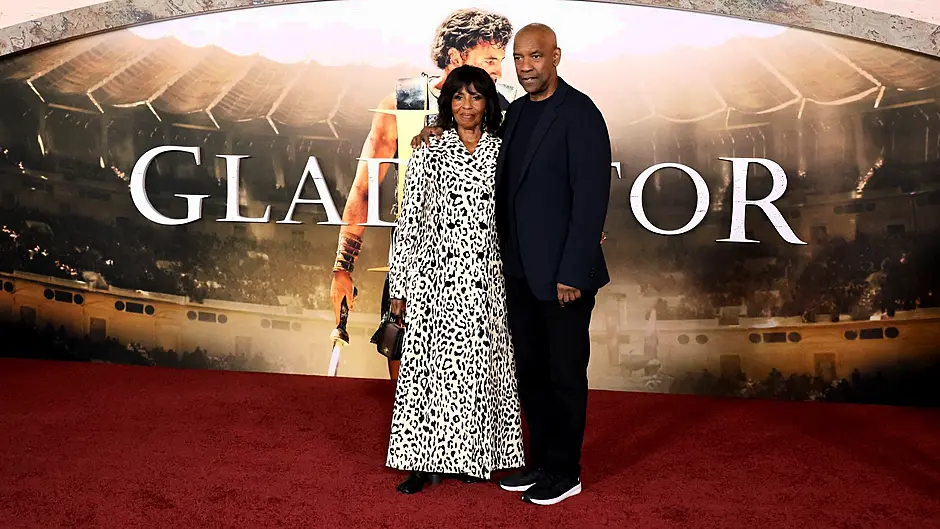
‘EVERYONE else was looking at me’.
That was how American actor Denzel Washington recently described his experience at the Oscars in 2000, when he was one of five nominees for best actor.
BY LINDA HAMILTON
Washington, who was nominated for The Hurricane, didn’t win on that occasion; instead, the gong went to Kevin Spacey for his role in American Beauty.
Washington described how he heard Spacey’s name being called, adding; ‘I have a memory of turning around and looking at him, and nobody was standing but the people around him.
‘And everyone else was looking at me. Not that it was this way. Maybe that’s the way I perceived it. Maybe I felt like everybody was looking at me. Because why would everybody be looking at me? Thinking about it now, I don’t think they were.’
Why do moments like this resonate with so many of us? Few people know what it’s like to be nominated for an Oscar, but we’ve all been in Denzel Washington’s position – walking into a room, fumbling a word in a meeting, or tripping in front of a crowd – and feeling like all eyes are on us.
Looking back, Washington rightly wondered if his mind was deceiving him.
Maybe people weren’t looking at him, he suggests; maybe it just felt that way at the time.
From a psychological standpoint, this phenomenon highlights the ways our minds can play tricks with us.
One reason for this is what psychologists call the spotlight effect – a cognitive bias where we overestimate how much other people notice or care about what we’re doing.
Research shows we tend to believe our actions and appearance are under constant scrutiny, but the truth is far more forgiving.
Most of the time, others are too preoccupied with their own lives to notice the small things that loom large in our minds.
Imagine you spill coffee on your shirt before work.
You spend the day tugging your jacket closed, convinced everyone you pass is silently eyeing your shirt. In reality, most people are unlikely to notice – or care.
The discomfort lies not in their perception but in your heightened self-awareness.
The spotlight effect often emerges in moments of vulnerability, like Denzel Washington’s Oscar memory.
Whether it’s a major awards show or a simple social interaction, when the stakes feel high, our sense of self-consciousness skyrockets.
Biases
The spotlight effect is closely linked to egocentric bias, the tendency to see the world through a self-centred lens.
This isn’t narcissism – it’s just how our brains work. We are the star of our own stories, so we naturally focus on our experiences and assume others do the same.
To return to the example of Denzel Washington, he may have felt particularly self-conscious because he was a nominee, emotionally invested in the outcome.
His heightened awareness of his own reaction likely made him believe others were equally tuned in.
Moments like these don’t happen in a vacuum.
Our emotional state plays a huge role in how we interpret events. In Washington’s case, the Oscars were a high-stakes environment, and awards ceremonies often evoke a mix of hope, excitement, and nerves – emotions that can amplify self-consciousness.
When we’re anxious, we’re more likely to assume people are judging us.
This is partly due to our brain’s negativity bias – a survival mechanism that makes us more attuned to potential threats.
In modern life, ‘threats’ often take the form of imagined judgment, leading us to perceive critical attention where there is none.
Understanding these biases can be freeing.
If Denzel Washington’s story resonates with you, consider this: the way we perceive the world is often more about us than about reality.
Recognising this fact is the first step toward breaking free from unnecessary self-consciousness.
The next time you feel the weight of the spotlight, remember that most people are too busy focusing on their own lives to focus on yours.
And even if someone is watching, it’s worth considering: what would happen if you stopped worrying about what they thought?
Ultimately, we can never fully control how others see us, but we can control how we respond to those fears.
And in the process, we might just realise the harshest spotlight isn’t coming from others – it’s coming from ourselves.







